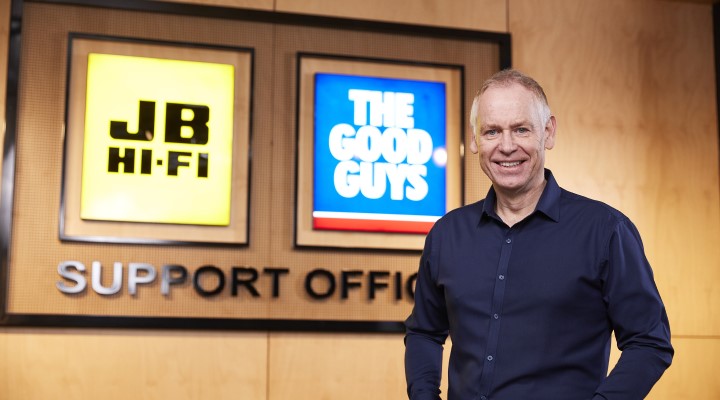For a number of years JB Hi-Fi’s annual sales results have delivered an unofficial barometer of the overall health of the retail industry. It has been one of the most consistent performers in the industry, and often showcases the trends in consumer spending. And in its full year results announcement on Monday, JB seems to have delivered another accurate forecast. The group’s sales growth jumped to 4.3 per cent to $9.63 billion for the year, compared to last year’s 3.5 per cent growth
growth, while net profit fell 3.7 per cent year on year to $524.6 million.
While the business posted record total sales, it showcases the double whammy of market normalisation following the highs of the Covid-19 pandemic, as well as the impact of consumers’ changing spending habits as the basics of everyday life become more expensive, leaving less cash for discretionary spending.
These issues are hitting every corner of the industry, and will no doubt colour the rest of the market’s results in the coming weeks.
The JB advantage
JB Hi-Fi Group’s chief executive Terry Smart told analysts and investors that the business has a number of competitive advantages in the market, such as a younger customer base and semi-discretionary items, including phones and laptops, still performing well.
Smart noted that JB is still cycling an “unusual” period, but that the business’ position as a value retailer is helping it stay top of mind with customers.
“We’re resonating much more strongly in today’s market with customers,” Smart said.
“If they’re considering buying, then we’re definitely going to be on their shopping list.”
According to Smart, the heightened uncertainty in the retail market is actually serving the business well, as customers know that if they go to a JB Hi-Fi store, they can typically negotiate prices and get a better deal.
This has led to the JB Hi-Fi Australia business seeing higher sales volumes, but a lower average sale price. Alternatively, The Good Guys saw lower sales volumes, but a higher average sale price, largely due to different categories selling well in each business: home appliances at The Good Guys, and products like next-generation video game consoles at JB Hi-Fi.
In fact, The Good Guys business fared slightly worse than JB Hi-Fi Group was anticipating for the year, with sales up only 0.8 per cent compared to the same time in FY22, while EBIT fell 11.8 per cent to $123 million.
What’s to come?
The question moving forward is whether JB’s relatively stable result reflects a broader stabilisation of the Australian retail sector in FY23, or if it is once again a fairly stand-out achiever in a struggling market.
Last month, JP Morgan warned that more tightening of monetary policy is anticipated before the end of the year in developed markets, and that the result of that would likely be a “synchronised global recession”, hitting sometime before the end of 2024.
With that in mind, and with more consumers struggling to pay ballooning bills and mortgages, it’s difficult to know what the impact will be on discretionary spending in the future.
According to recent ABS data, sales in every sector of the retail industry –apart from grocery and food – fell in the year to June.
At the time, Australian Retailers Association CEO Paul Zahra said sales growth for essentials like food “masked an overall decline” in retail spending.
“Despite overall sales growth, the reality is that we’re very much in the grip of a discretionary spending slowdown,” Zahra said.
JP Morgan noted that while customers are indeed spending less, many companies have largely salvaged lower sales with price increases.
“Corporates are starting to see slowing volumes, but when you factor in price rises of 10 per cent or more, the overall impact on revenue is limited,” the firm said.
It’s unclear how long customers can absorb increased prices.
For what it’s worth, JB Hi-Fi didn’t share any performance expectations for the year ahead.
It did, however, recently share that it sees an opportunity to increase its market share in New Zealand, and will be investing in doubling its store network in the coming years – which could be an opportunity to offset slowing growth in Australia.

